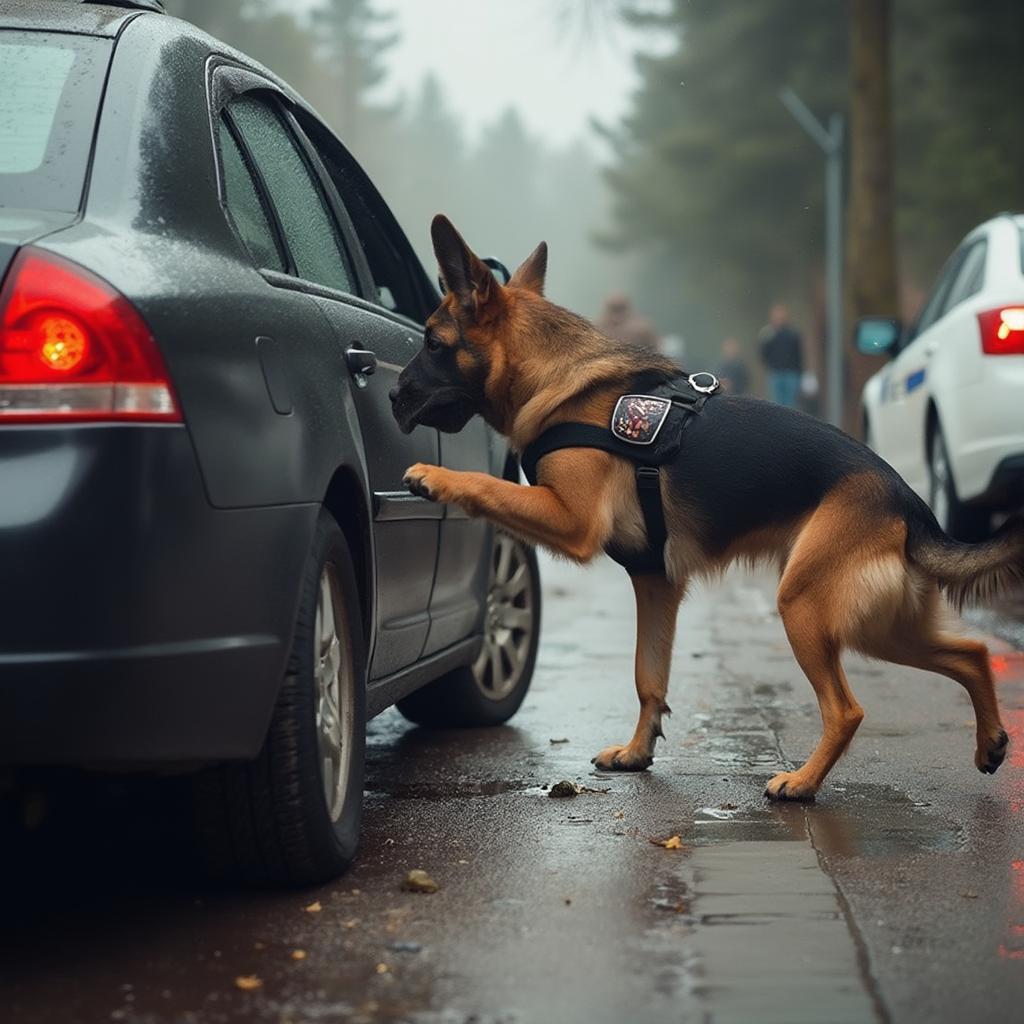Your cart is currently empty!

Can an Officer Search Your Car Based on a Tip?
Can an officer search your car based on a tip? This is a common question with a complex answer. Understanding your rights and the legal limitations on police searches is crucial for any driver. This article explores the intricacies of vehicle searches based on tips, providing you with the knowledge you need to navigate such situations.
What Constitutes a Legal Tip?
The Fourth Amendment of the U.S. Constitution protects individuals from unreasonable searches and seizures. This means police generally need a warrant based on probable cause to search your vehicle. However, there are exceptions, and tips from informants are one area where the law gets tricky. A tip alone isn’t enough. The tip must be credible and provide enough detail to establish reasonable suspicion, leading officers to believe a crime has been, is being, or is about to be committed.
For example, a vague tip about “a suspicious car” is insufficient. But a tip detailing a specific car make, model, license plate, and the driver’s description, coupled with information about illegal activity like drug trafficking, could give police reasonable suspicion to initiate a stop and potentially a search. The reliability of the informant also plays a crucial role. A known and trusted informant’s tip holds more weight than an anonymous one.
Anonymous Tips and Their Validity
Anonymous tips present a unique challenge. While they can be valuable, their anonymity raises questions about reliability. Courts have held that anonymous tips, corroborated by independent police investigation, can provide reasonable suspicion. This means police must verify aspects of the tip before taking action. For example, if an anonymous tip claims a red SUV with a specific license plate is carrying stolen goods, police might observe the vehicle to confirm its description and location before initiating a stop.
However, even with corroboration, an anonymous tip alone is rarely sufficient for probable cause, which is needed for a warrant. It can justify a brief investigative stop, during which officers may gather further evidence that could lead to probable cause.
Does a Tip Give Police Right to Search a Car?
Not automatically. While a credible tip can contribute to reasonable suspicion, it doesn’t inherently give police the right to search. The tip must be assessed in conjunction with other factors, like the officer’s observations, the totality of the circumstances, and any other evidence available. The key question is whether the information available to the officer, including the tip, creates a reasonable belief that a crime has been or is being committed.
 Police officer questioning a driver during a traffic stop
Police officer questioning a driver during a traffic stop
Protecting Your Rights During a Traffic Stop
If you’re stopped based on a tip, remain calm and polite. You have the right to remain silent and to refuse a search of your vehicle without a warrant. Clearly and respectfully state, “I do not consent to a search of my vehicle.” If the police proceed with a search despite your refusal, do not physically resist. Instead, document the interaction and contact a lawyer as soon as possible.
It’s important to understand that even if you believe the stop is unwarranted, arguing with the officer at the scene is rarely productive. Your best course of action is to cooperate with the stop, assert your rights, and document the encounter. Later, you can challenge the legality of the search with legal counsel.
Understanding Reasonable Suspicion vs. Probable Cause
Reasonable suspicion is a lower standard of proof than probable cause. It’s the level of suspicion needed for a brief investigative stop, also known as a “Terry stop.” Probable cause, on the other hand, is required for an arrest or a search warrant. It means there is enough evidence to believe a crime has been committed. A tip, even a credible one, often contributes to reasonable suspicion but may not reach the level of probable cause without further evidence.
 Police dog conducting a K9 search of a vehicle
Police dog conducting a K9 search of a vehicle
Conclusion
Can an officer search your car based on a tip? The answer hinges on the credibility of the tip, the details it provides, and the totality of the circumstances. Understanding your rights and the legal standards for searches can help you navigate such situations effectively. If you are ever in doubt, consult with a legal professional. Knowing your rights is the first step in protecting them.
FAQs
- What should I do if I believe a police search of my car was illegal?
- Can the police search my car without my permission?
- What is the difference between reasonable suspicion and probable cause?
- What rights do I have during a traffic stop?
- Can an anonymous tip lead to an arrest?
- How can I challenge the legality of a police search?
- What information should I document during a traffic stop?
Common Scenarios
- Scenario 1: An anonymous tip accurately describes your car and alleges you possess drugs, leading to a traffic stop.
- Scenario 2: A known informant provides a tip about illegal activity involving a vehicle matching your description.
- Scenario 3: A police officer receives a vague tip about a “suspicious vehicle” and stops your car.
Further Exploration
For more information on related topics, visit our article on does a tip give police right to search a car.
Need help?
Contact us via WhatsApp: +1(641)206-8880, Email: [email protected]. Our customer service team is available 24/7.

Leave a Reply